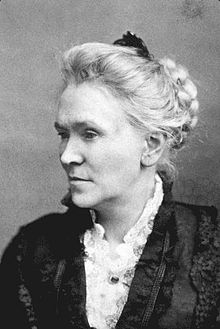Today we celebrate women from all over the globe for their perseverance, dedication, and achievements. Without the women who came before us we would not enjoy the rights and freedoms that we hold so near and dear.
Today we would like to highlight a woman that played a very direct role on the League, First Lady Eleanor Roosevelt. Most people know Eleanor for her work as a humanitarian and activist but many are unaware that Mrs. Roosevelt was also an active League of Women Voters member. She believed that the League enabled people to become informed citizens. The League also helped many women become involved in politics at the local and even national level.

Deeply involved in social justice work, Eleanor Roosevelt
believed strongly that women deserved a place at the table when it came to
politics. Prior to her husband’s presidency, she worked with and helped lead a
number of women’s groups, including the International Congress of Working
Women, the Woman's Trade Union League and the Women's International League of
Peace and Freedom. After the League of Women Voters was founded in 1920 – the
same year that Franklin D. Roosevelt ran for Vice President – she helped
establish its policy agenda. As the League’s Vice President of Legislative
Affairs, she lobbied for reforms in Congress and worked tirelessly to
strengthen women’s role in politics, helping mobilize women voters through the
League’s nonpartisan training and lobbying work. “I’ve always found that the
best workers in a political party frequently are graduates of the League of
Women Voters,” she wrote in 1953. “Members learn how to find out what they
really want to know on a wide variety of subjects. The League…trains good
citizens who have a sense of responsibility about what goes on in their
locality, in their state and in their nation.” Even after she resigned as
League Vice President in 1924, she remained an active League member and
continued to promote the League’s platforms and ideals, including regularly
writing for the League of Women Voters of New York’s newsletter.

Eleanor Roosevelt’s work to empower women’s participation as
voters and political leaders only strengthened after her husband assumed the
presidency in 1933. She consistently campaigned for the Roosevelt
administration to hire women for executive level appointments, supported
anti-lynching campaigns and fought for fair housing for minorities. Throughout
these efforts, she held press conferences to inform women voters, including
urging them to speak their minds and engage on policy issues.
Today we give thanks for all the Eleanor Roosevelt did for the League.
You can read more about Eleanor Roosevelt on the National League of Women Voters Website
here.







